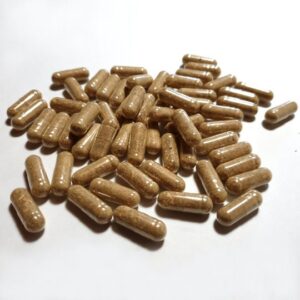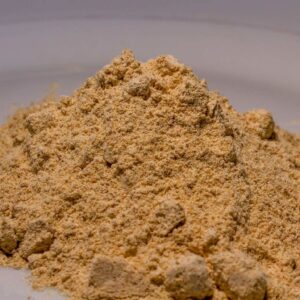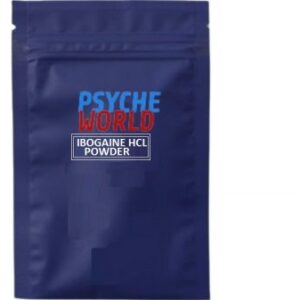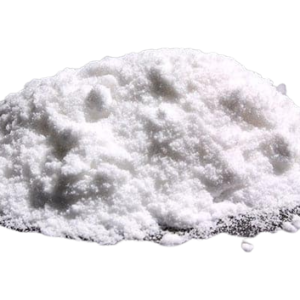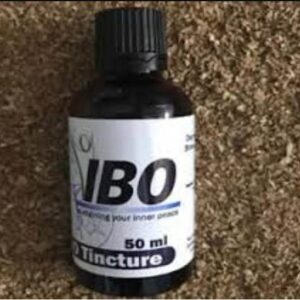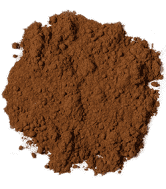Ibogaine
Ibogaine
Ibogaine
Ibogaine
Ibogaine
Ibogaine: How It Can Enhance Your Life
Ibogaine, a powerful and unique psychoactive substance derived from the iboga plant, has gained recognition for its potential therapeutic benefits. Originally used in traditional African spiritual practices, ibogaine is now being studied for its effects on addiction, mental health, and overall well-being. This comprehensive guide delves into how ibogaine can enhance your life, exploring its benefits, uses, risks, and considerations for those interested in this intriguing substance.
1. Introduction to Ibogaine
Ibogaine is a naturally occurring psychoactive compound found in the root bark of the iboga plant (Tabernanthe iboga). It has a rich history of use in traditional African rituals and is now being explored for its potential therapeutic applications.
1.1 What is Ibogaine?
Ibogaine is a psychoactive alkaloid that has been used traditionally by various African tribes for spiritual and ceremonial purposes. In recent years, it has attracted attention for its potential to treat addiction and mental health conditions.
- Chemical Structure and Classification: Ibogaine is classified as a psychoactive substance and is known for its complex chemical structure. It is distinct from other substances due to its unique effects and potential therapeutic uses.
- Forms of Ibogaine: Ibogaine is typically administered in the form of a powder, capsule, or extract. The substance is derived from the root bark of the iboga plant, which is native to Central Africa.
1.2 Historical Use and Cultural Significance
In traditional African cultures, ibogaine has been used for centuries in spiritual and initiation ceremonies. It is considered a sacred plant medicine with profound spiritual and psychological effects.
- Spiritual and Ritualistic Use: Ibogaine plays a central role in the Bwiti religion of Central Africa, where it is used to induce visionary experiences and spiritual insights during rites of passage and healing ceremonies.
- Cultural Practices: The use of ibogaine in these traditional practices reflects its deep cultural significance and its role in the spiritual and communal life of the Bwiti people.
1.3 Modern Applications and Popularity
In recent decades, ibogaine has gained popularity in the Western world for its potential to treat addiction and other mental health conditions. It is increasingly recognized for its therapeutic potential, although it remains a controversial and regulated substance.
- Research and Clinical Trials: Modern research has focused on ibogaine’s effects on addiction, mental health, and neurobiology. Clinical trials and studies are exploring its potential therapeutic benefits and safety profile.
2. How Ibogaine Works
Understanding how ibogaine works involves exploring its effects on the brain and body, including its mechanisms of action and impact on neurotransmitter systems.
2.1 Mechanism of Action
Ibogaine acts on several neurotransmitter systems in the brain, which contributes to its unique effects and therapeutic potential.
- NMDA Receptor Modulation: Ibogaine interacts with the NMDA (N-methyl-D-aspartate) receptor, which is involved in synaptic plasticity and learning. This interaction is thought to play a role in ibogaine’s effects on addiction and mental health.
- Opioid Receptor Interaction: Ibogaine also affects opioid receptors, which are involved in pain regulation and reward pathways. This interaction may contribute to its potential for treating addiction and reducing withdrawal symptoms.
2.2 Effects on the Brain
Ibogaine’s effects on the brain can lead to a range of cognitive, emotional, and perceptual changes:
- Altered Perception: Ibogaine induces altered states of consciousness, which can lead to profound insights, introspection, and visionary experiences.
- Neuroplasticity: By modulating neurotransmitter systems, ibogaine may promote neuroplasticity, allowing the brain to reorganize and adapt to new experiences and challenges.
2.3 Differences from Other Psychoactive Substances
Ibogaine’s unique effects and mechanisms of action distinguish it from other psychoactive substances, such as psychedelics and stimulants.
- Psychedelic Properties: Unlike classic psychedelics, ibogaine has a longer duration of action and can induce both visionary and introspective experiences.
- Therapeutic Potential: Ibogaine’s potential for treating addiction and mental health conditions sets it apart from other substances, making it a subject of interest in the field of addiction medicine and psychology.
3. Benefits of Ibogaine
Ibogaine offers a range of potential benefits, particularly in the context of addiction treatment and mental health improvement.
3.1 Addiction Treatment
- Addiction Interruption: Ibogaine has been shown to interrupt addictive behaviors and reduce cravings, making it a promising tool for treating substance use disorders. It may help individuals break the cycle of addiction and initiate recovery.
- Reduction in Withdrawal Symptoms: Ibogaine can alleviate withdrawal symptoms associated with opioid addiction, providing relief and support during the detoxification process.
3.2 Mental Health Benefits
- Trauma and PTSD: Ibogaine’s introspective and visionary effects may facilitate the processing of traumatic experiences and symptoms of post-traumatic stress disorder (PTSD). It can help individuals confront and integrate past traumas.
- Depression and Anxiety: Some studies suggest that ibogaine may have antidepressant and anxiolytic effects, helping to alleviate symptoms of depression and anxiety.
3.3 Enhanced Self-Awareness and Personal Growth
- Introspective Insights: Ibogaine can lead to profound self-awareness and personal insights, helping individuals gain a deeper understanding of themselves and their life experiences.
- Spiritual Growth: For those seeking spiritual or existential exploration, ibogaine may facilitate a sense of connection and insight, contributing to personal and spiritual growth.
4. How to Use Ibogaine Safely
Using ibogaine safely requires careful consideration of dosage, administration, and potential side effects.
4.1 Dosage and Administration
- Medical Supervision: Ibogaine should be administered under the supervision of a qualified healthcare professional. Dosage and administration protocols vary depending on the individual’s condition and treatment goals.
- Treatment Protocols: Treatment protocols may involve a single high-dose session or a series of sessions, depending on the therapeutic approach and the individual’s needs.
4.2 Recommended Dosage
- Standard Dosage: The dosage of ibogaine can vary widely based on the form and treatment protocol. Typical dosages range from 10 to 30 milligrams per kilogram of body weight, administered in a controlled medical setting.
- Titration and Adjustment: Dosages may be adjusted based on the individual’s response and tolerance. Healthcare professionals will monitor the effects and make necessary adjustments.
4.3 Potential Side Effects and Risks
- Common Side Effects: Ibogaine can cause side effects such as nausea, dizziness, and visual disturbances. These effects are typically transient and resolve after the treatment session.
- Serious Risks: Serious risks associated with ibogaine use include cardiovascular effects, hallucinations, and potential interactions with other medications. Regular monitoring and follow-up are essential for managing these risks.
5. Ibogaine for Addiction Treatment
Ibogaine’s potential for treating addiction has garnered significant interest, particularly for individuals struggling with substance use disorders.
5.1 Opioid Addiction
- Interrupting Opioid Dependency: Ibogaine has shown promise in interrupting opioid dependency and reducing cravings. It may help individuals transition from opioid use to recovery.
- Clinical Evidence: Studies and clinical trials have demonstrated ibogaine’s effectiveness in reducing withdrawal symptoms and promoting recovery in individuals with opioid addiction.
5.2 Other Substance Use Disorders
- Cocaine and Methamphetamine: Ibogaine has been explored for its potential to treat addiction to other substances, such as cocaine and methamphetamine. It may help reduce cravings and support recovery.
- Broad Applications: Research is ongoing to determine the effectiveness of ibogaine for various substance use disorders and to develop optimal treatment protocols.
6. Legal and Ethical Considerations
The legal status and ethical considerations of ibogaine are important for ensuring responsible and safe use.
6.1 Legal Status
- Regulation and Prescription: Ibogaine is classified as a controlled substance in many countries and is subject to regulation and restrictions. It is often available only through specialized treatment programs or clinical trials.
- International Regulations: The legal status of ibogaine varies internationally. Research the regulations in your country or region before considering its use.
6.2 Ethical Considerations
- Responsible Use: Ethical use of ibogaine involves ensuring that it is used for legitimate medical purposes and under the supervision of qualified healthcare professionals.
- Informed Consent: Patients should be fully informed about the potential risks and benefits of ibogaine treatment and provide informed consent before undergoing therapy.
7. Personal Stories and Testimonials
Personal stories and testimonials provide valuable insights into the experiences of individuals who have used ibogaine.
7.1 Healing and Transformation
Many individuals have reported significant improvements in their mental health and overall well-being as a result of ibogaine therapy. Stories of overcoming addiction, gaining self-awareness, and achieving personal growth illustrate the transformative potential of ibogaine.
7.2 Overcoming Challenges
Testimonials often highlight the challenges individuals have faced while undergoing ibogaine treatment, including managing side effects and navigating the treatment process. These stories offer valuable lessons and advice for those considering ibogaine therapy.
8. Future Directions and Research
Ongoing research and developments in the field of ibogaine therapy may reveal new applications and benefits.
8.1 Advances in Scientific Research
- Clinical Trials: Ongoing clinical trials are exploring ibogaine’s potential for treating various conditions, including addiction, depression, and trauma. Research aims to enhance our understanding of its efficacy and safety.
- Mechanisms of Action: Continued research is focused on elucidating ibogaine’s mechanisms of action and its effects on brain function and neurotransmitter systems.
8.2 Innovations in Ibogaine Therapy
- New Formulations: Researchers are developing new formulations and delivery methods for ibogaine to improve its efficacy and safety.
- Combination Therapies: Studies are investigating the potential benefits of combining ibogaine with other therapies, such as psychotherapy or behavioral interventions, to enhance treatment outcomes.
9. Conclusion
Ibogaine offers a range of potential benefits, from addiction treatment to personal growth and spiritual exploration. By understanding its effects, benefits, and risks, you can make informed decisions about whether ibogaine is a suitable option for enhancing your life.
10. Call to Action
If you are considering ibogaine therapy, consult with a qualified healthcare professional to discuss your options and determine if ibogaine is right for you. Educate yourself about the treatment process, potential side effects, and best practices for safe use. By approaching ibogaine with knowledge and responsibility, you can harness its potential to improve your well-being and quality of life.

